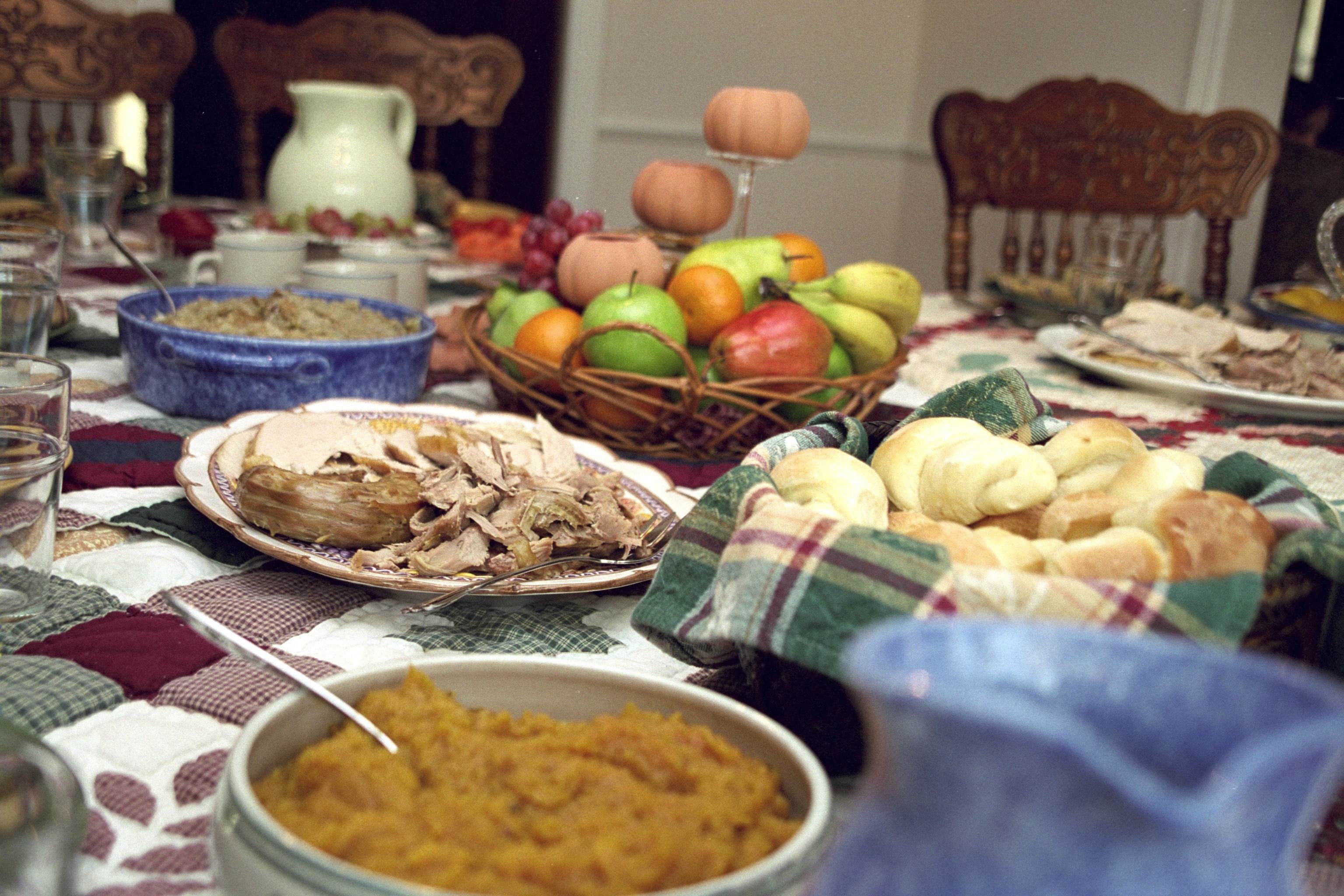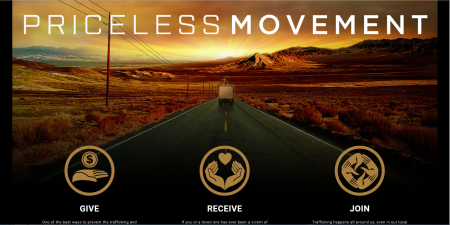This is the twelfth, of a hopefully weekly series, that explores faith, religion, and Christianity. The idea is to share with you my faith, issues I am working on, and to promote discussion.
I think Thanksgiving is the best Holiday because it’s on a Thursday, meaning of course we are going to get Friday off too!

Also, any Holiday where people stop down and reflect on reasons to be thankful ain’t too bad either…
Many families, religious or not, will pause a moment before eating their Thanksgiving meal and either pray or make a remark about something which they are thankful for in their life.
This moment is sometimes referred to as “saying grace”.
This idea, this word, “grace”, is one that is challenging for me to understand.
Often times, when the word “grace” is mentioned, it is quickly followed up with words to support it like “mercy”, “forgiveness”, “salvation”, “repentance”, or “regeneration”.
And these help make the concept and idea of “grace” a bit more understandable, but ultimately different words are usually different for a reason.
The nuances and connotations of each word can carry meaning beyond the simple definition.
Frankly, I’m not a linguistic expert by any stretch of the imagination.
I could blast you with verses about “grace” and walk off feeling like I helped, when in reality, it probably wouldn’t.
For myself, I haven't ever gotten much out of that, so I don’t know about you, but think it might not be all that useful.
However, let’s look together at a definition of "grace" to provide a basis from which to move the discussion forward:
An accurate, common definition describes grace as the unmerited favor of God toward man. In the Old Testament, the term that most often is translated "grace, " is hen [ej]; in the New Testament, it is charis [cavri"]. Reference
This idea of “unmerited” is hard for a “go-getter” like me.
Sometimes in life it seems easier if I know what to do and get it done.
Or if I don’t know what to do, do something and figure it out as I go.
Not doing anything usually isn’t an option.

It should be no surprise that I am bad at resting and relaxing.
I’ve tried to get better, but “doing things” to get better at resting is kinda self-defeating.
But that’s okay.
Working through The Gospel-Centered Life, I discovered a graphic that helps illustrate the point that as time goes on, a Christian will have growing awareness of God’s Holiness along with a growing awarenss of their sinfulness.
The understanding of the immensity of this gap is where I find great relief in grace.
But that I can’t do anything to merit, or earn this grace, doesn’t mean I do nothing.
The Apostle Paul had this to say:
“Therefore, my beloved, as you have always obeyed, so now, not only as in my presence but much more in my absence, work out your own salvation with fear and trembling, for it is God who works in you, both to will and to work for his good pleasure.” Philippians 2:12-13 ESV
And Francis Chan in his book Forgotten God, helped to explain that on page 132:
“I love the apparent contradiction in this passage. Paul says in one breath, “Work out your own salvation,” and in the next, “It is God who works in you.” The both-ness here doesn’t allow us to escape with a simple conclusion. Yes, it is God who works in you. And, yes, there is work for you to do. Yes, the Spirit empowers you to do the work. And, yes, you do the work.” (p. 132)
I can’t earn God’s grace, but that doesn’t mean I sit around and do nothing with my life.
Perhaps the most dominant metaphor with which grace is associated is the legal metaphor of justification.
“We see the two linked in two very important passages in which grace is used in Paul. Romans 3:23-24 states quite clearly that all have fallen short of the glory of God and are "justified freely by his grace through the redemption that came by Christ Jesus."” Reference
“Here, while the language of the slave market may be implied in the use of the word "redemption, " and that of the cultus in the use of the phrase "sacrifice of atonement" in the next verse, the strongest linking with grace in this passage is with the word "justified" in verse 24. Hence the unmerited favor of God buys us legal freedom from our sin and cancels the sentence of guilt the judge has had to declare in order "to be just and the one who justified those who have faith in Jesus" (v. 26). It is interesting to note that the next thought of Paul is: "where, then, is boasting? It is excluded" (v. 27), again emphasizing that grace is free and not the work of man.” Reference
Although a bit, wordy, I am good with all that. Even though I still want to do something...
Yet again, Paul helps us understand this word grace when he writes:
“For by grace you have been saved through faith. And this is not your own doing; it is the gift of God, not a result of works, so that no one may boast.” Ephesians 2:8-9 ESV
Yes, the act of justification by way of grace is freely given to us.
But, I’ve heard it said: “It is more blessed to give than to receive.”
We can not earn the grace that is given to us, but must we sit and do nothing once we receive it?
Can we not do something?

This does not mean that Paul keeps grace separate from works in sanctification, for he goes right on to speak of us being God's workmanship created in Christ Jesus to do good works (v. 10).
“For we are his workmanship, created in Christ Jesus for good works, which God prepared beforehand, that we should walk in them.” Ephesians 2:10 ESV
I can dig this.
“Similarly, grace is seen as being in the midst of our present Christian life. In Romans 5:2 Paul speaks of gaining "access by faith into this grace in which we now stand" and in 5:21 of grace reigning "through righteousness to bring eternal life through Jesus Christ our Lord." While all of this is in the context of the grace of God as a gift versus the Law of God as a work, nevertheless grace is viewed as reigning even as we live the life we are supposed to live in Christ. Hence the argument of Romans 6 that we are not to go on sinning so that grace may increase, but we are to "count [ourselves] dead to sin but alive to God in Christ Jesus for sin shall not be [our] master, because [we] are not under law, but under grace" (vv. 11-14).” Reference
“The key metaphor used in this chapter to describe this "work" of sanctification is "offer." Hence we are not to "offer the parts of [our] body to sin as instruments of wickedness, " but rather offer ourselves to God, "as those who have been brought from death to life" (v. 13). This is done as slaves, offering ourselves in obedience to him (v. 16).” Reference
Or as Paul puts it in Romans 12:1:
“I appeal to you therefore, brothers, by the mercies of God, to present your bodies as a living sacrifice, holy and acceptable to God, which is your spiritual worship.”
Again Francis Chan in his book Forgotten God, puts it like this:
“Like many things in life, there really isn’t a sew-it-all-up solution. And I love that. God is big and mysterious enough that we cannot simply put a label on this process and move on. It requires continual engagement and wrestling and discovering how to live a Spirit-filled life today. Not ten years from now. Not tomorrow. But right now, in the particular time and place He has put us. As we “work out our salvation” and as “God works in us.” Let us keep in step.” (p. 133)
Now that is something worth doing.
If this relates to you and you are interested in knowing more, please ask someone. Me. My wife. A local pastor. A neighbor you know who is a Christian. But please ask and I guarantee you that they will be excited to tell you more. They will especially appreciate that you asked them so that they are not forcing their beliefs upon you but getting your permission to share. It may even be something they have been praying for.
Lord willing, see you all next Sunday!
Thanks,
@strangerarray

Follow me @strangerarray for more because it’s not over yet.
Donations to PayPal.Me/michaelpaine are also welcome because I accept donations.
Please check out the previous discussions:
- Disparity on Display
- Comfort and Contentment
- Testify
- Praise and Worship
- Reasons to Believe
- Do I have to go?
- In God We Trust
- It’s Hard to Find Good Help These Days
- Breaking the Habit of Self-Destruction
- Nothing Is Ideal
- What Difference Does It Make?
Want to Make A Difference?

Support the Priceless Movement by clicking on the image above.
You will learn more about: one of the best ways
- How to prevent the trafficking and exploitation of children,
- How to provide support, restoration, and community for victims of trafficking, and
- Learn about anti-trafficking organizations near where you live
